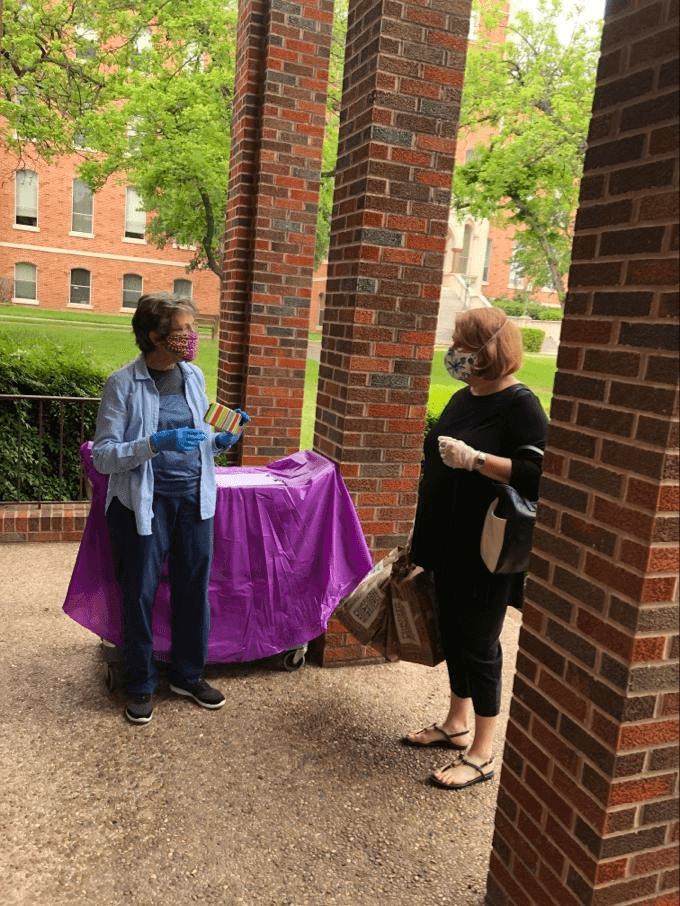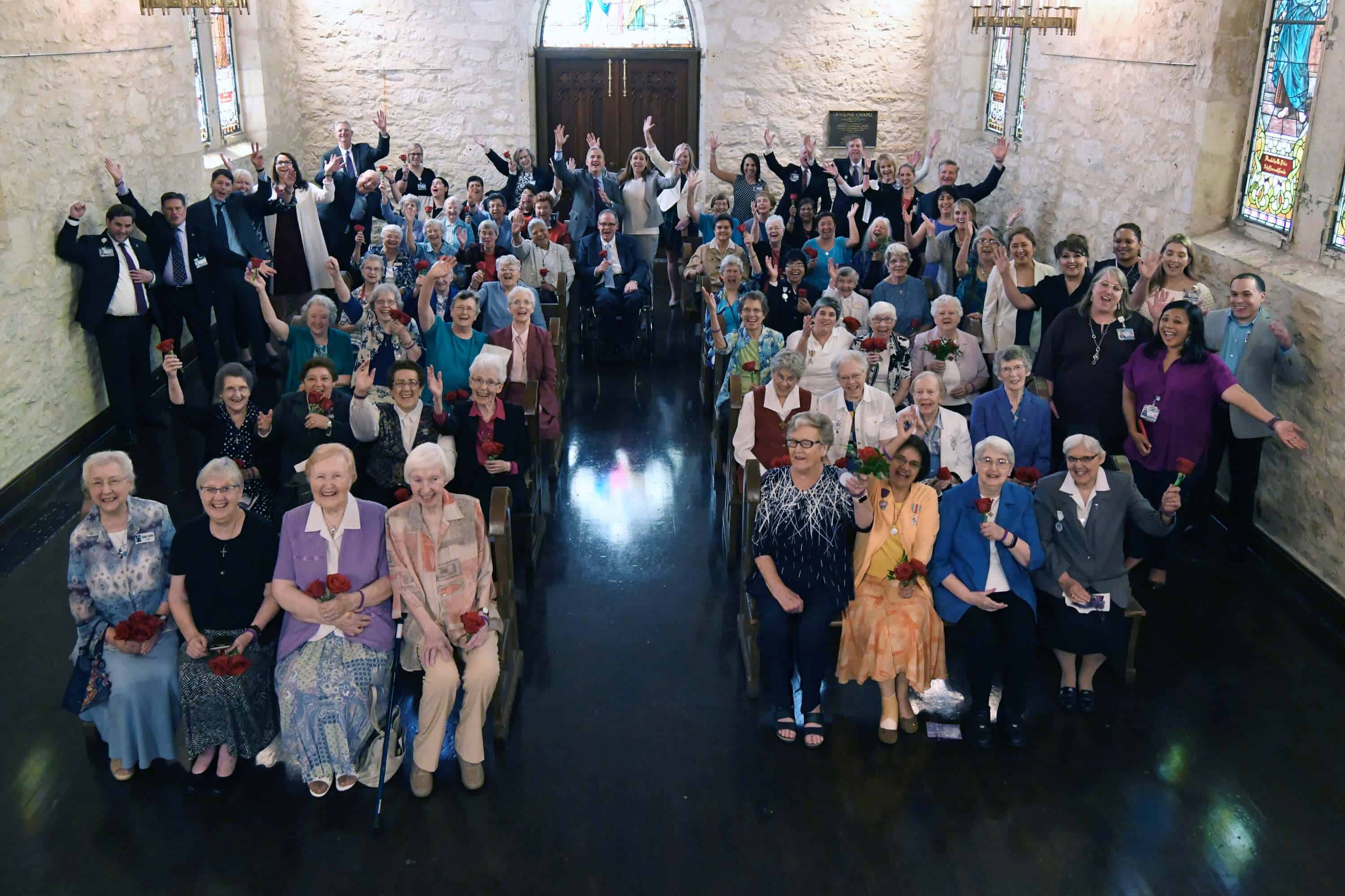Since the pandemic hit, six pop-up shelters for the unhoused have emerged in St Louis city and county. This major endeavor to move hundreds of people off the streets has created safe shelter, and amplified needs for health services. Incarnate Word Foundation has provided funding to the Build Missouri Health coalition, through the region’s COVID-19 response team, to underwrite the costs of electronic tablets, hotspots, and other systems to connect shelter staff to telehealth support systems.
St. Patrick Center, whose shelter is run within the old Little Sisters of the Poor facility in North St. Louis City (known as “Sister’s Mission), is one agency involved in this effort. “The tablets are a great support to provide services and create a system to help meet the chronic needs of this population,” said Anthony D’Agostino, CEO. “The purchasing and training of the staff to use the tablets is underway and much systemic setup is going on. We’re excited about the potential to reach many more clients through virtual contact versus one-on-one appointments with healthcare providers.”
“This certainly won’t replace personal interactions,” Anthony explained, “but is a huge help during this time of crisis, in the shelters where health care needs are especially acute. Providers are stretched thin, and through Build Missouri Health, we have many agencies who have come together” to launch and implement the project.
St. Patrick Center’s work has ramped up during the pandemic and have tripled their staff this spring. The shelter is at capacity with 51 spots occupied. Service agencies are transitioning from basic triage – getting people off the street — to assessing and addressing their bigger needs. “We got many people safe,” said Anthony, “and now we are trying to address long-term needs to help sustain them beyond the crisis of the pandemic.” Access to behavioral health care is key to helping people find housing, employment and be self-sustaining. “The tablet process is helping to support people this way we will be tracking progress,” said Anthony. “It’s a sound idea to respond to a real need.”
Click here to hear the first part of this text.
The photo credit belongs to: St. Louis Public Radio/Julie O’Donoghue.









0 Comments